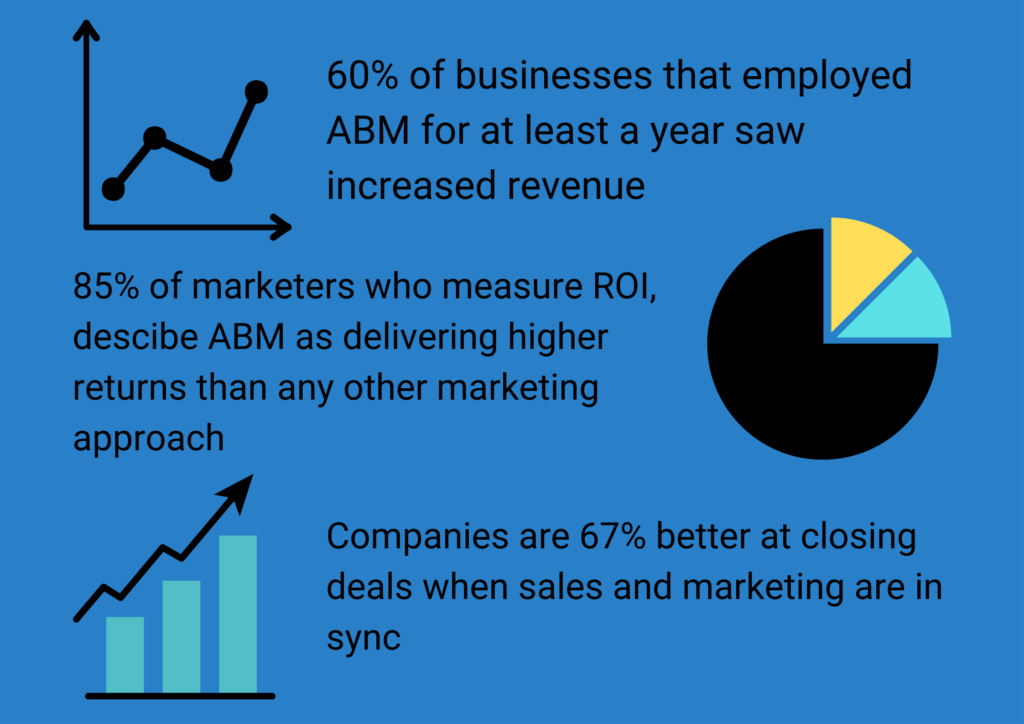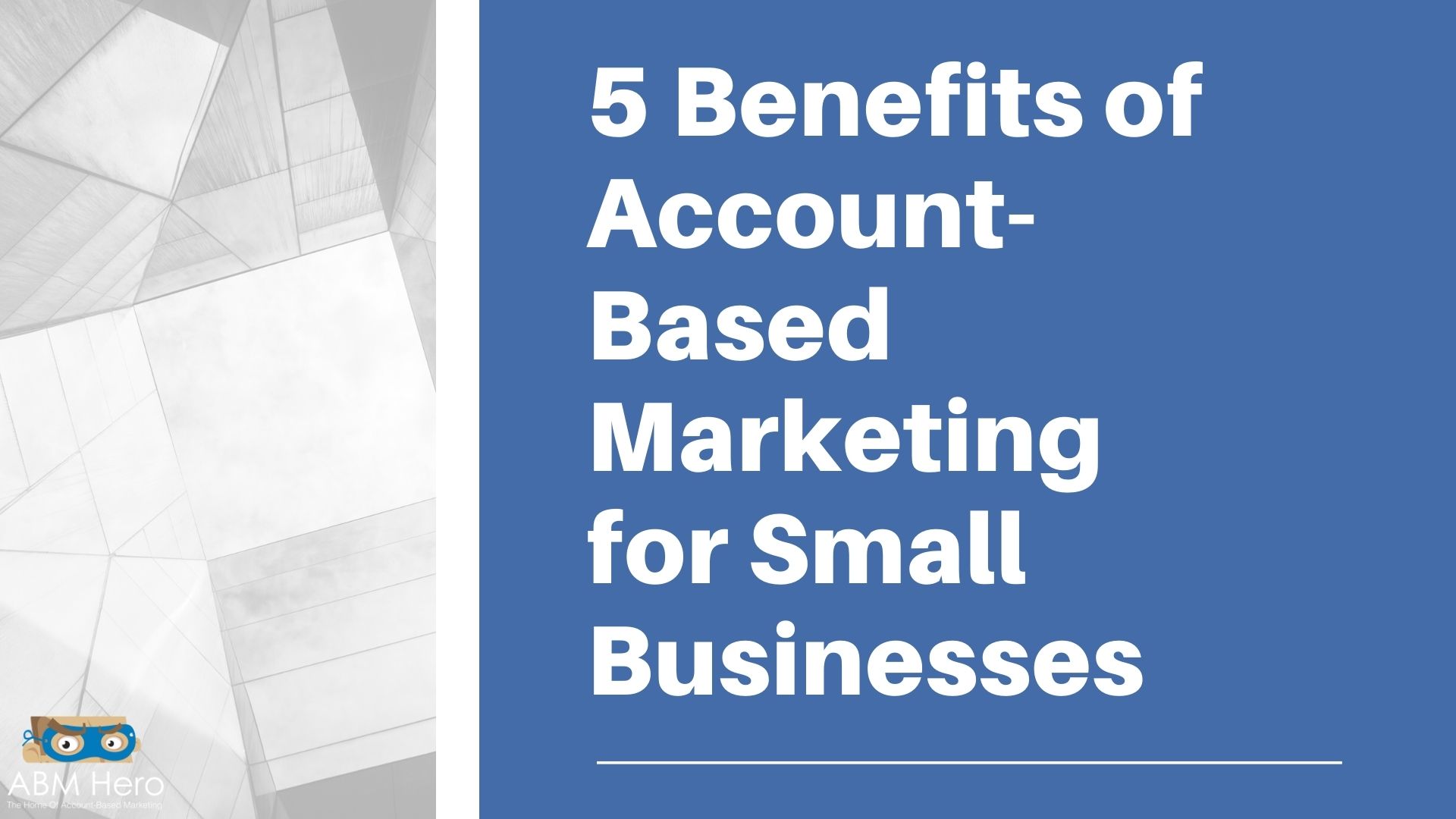If you’re a small business owner, you may be wondering if the benefits of account-based marketing (ABM) outweigh the cost.
When starting an account-based marketing campaign, you may worry about a number of things.
You may worry about whether or not your campaign is going to be successful, and whether or not you will be able to reach your target market.
Perhaps, you may worry about the cost of the campaign, and whether or not you will be able to recoup your investment.
But the truth is, ABM can be a game-changer for small businesses. ABM includes personalized marketing efforts such as direct mail to engage decision-makers by appealing to their specific needs and interests.
This article will discuss the five benefits of ABM for small businesses and how you can kick start your marketing campaigns without being overwhelmed with doubts.
What is Account-Based Marketing?
Account-Based Marketing (ABM) is a strategic approach that targets specific, high-value accounts and tailors marketing efforts to meet their unique needs. Unlike traditional marketing methods that cast a wide net, ABM focuses on aligning marketing and sales teams to create personalized buying experiences for these target accounts. This alignment ensures that both teams work in harmony to drive revenue growth and enhance customer relationships. By concentrating on a select group of high-value accounts, businesses can optimize their marketing resources, making their efforts more effective and impactful.
Cost-Effective Approach
Account-based marketing (ABM) is a cost-effective marketing strategy that small businesses can apply to target specific accounts and tailor their marketing efforts to those accounts.
This approach allows small businesses to be more strategic and efficient with their marketing resources and ultimately leads to more sales and revenue. There are several reasons why ABM is a cost-effective strategy for small businesses.
First, it allows small businesses to focus their marketing efforts on a specific target audience, which can save on marketing costs. Additionally, targeting high-value accounts can further enhance cost-effectiveness by focusing on accounts that can generate substantial revenue.
Second, a robust relationship built through trust diminishes the need for expensive marketing expenses in the long run.
By using referrals, you can acquire new customers without exerting much effort. Other people rely on the feedback of their close friends and families. So, it is worthwhile to try it.
Third, use account-based marketing to generate high-quality leads that are more likely to convert into customers. It can save on the costs of lead generation and lead nurturing.
Finally, account-based marketing can help you better target your marketing efforts to increase efficiency and lower marketing costs.
Shorter Sales Cycle
There are a few key ways wherein account-based marketing can reduce the sales cycle. First, by taking a targeted approach to marketing and sales efforts, account-based marketing can ensure that the right message is getting to the right decision-makers within a potential customer organization. It can help shorten the sales cycle with the assurance that there is no time wasted on pursuing leads that are not a good fit. It can help expedite the sales process as decision-makers are more likely to engage with the sales pitch relevant to their needs.
Additionally, account-based marketing can also help to speed up the sales cycle by providing sales teams with targeted information and resources that can help them close deals more quickly.
Moreover, account-based marketing also helps build relationships with potential customers resulting in reducing the sales cycle by creating a sense of trust and familiarity.
Finally, by building long-term relationships with key accounts, account-based marketing can create a repeatable and predictable sales process that can lessen the sales cycle.
Increased ROI
Account-based marketing (ABM) is a strategic approach to marketing that focuses on key accounts and tailors campaigns to each target account rather than the mass market. The aim is to create bespoke campaigns tailored to the specific needs of each account to increase ROI.

ABM is an effective way to increase ROI for small businesses. A study conducted by MarketingProfs stated that companies employing ABM experienced a 208$ increase in revenue.
Also, 87% of B2B marketers surveyed by ITSMA divulged that their ABM campaigns outperform their other marketing investments in terms of ROI.
A study by the Aberdeen Group found that companies using ABM achieved an average ROI of 193%, compared to the average company, which only achieved an ROI of 28%.
Resulting in increased customer satisfaction and loyalty, which can translate into repeat business and referrals. Second, a narrower target market means less competition, scoring higher profits. Lastly, by targeting a specific group of clients, you can effectively use marketing and advertising to reach them, creating lower marketing costs.
There are several reasons why ABM is so competent at increasing ROI for small businesses as it allows the marketing industry to focus its resources on key accounts rather than wasting time and money on the mass.
Better Utilization of Smaller Marketing Teams
Account-based marketing (ABM) is an approach to marketing in which a marketing team identifies and targets key accounts with personalized campaigns. This approach can be functional for organizations with limited marketing resources, as it allows them to focus their efforts on a smaller number of high-value accounts.
ABM can be particularly effective for organizations that sell complex products or services, as it allows them to tailor their marketing messages to the specific needs of each account.

ABM also helps businesses to better understand their customers and their needs. It allows marketing industries to create more targeted and effective marketing strategies.
Above that, ABM can help organizations build deeper relationships with their key accounts resulting in increased sales and loyalty. There are several steps that organizations can take to successfully implement an ABM strategy.
Reduction of Resource Wastage
By targeting specific accounts, businesses can use their resources more efficiently and avoid wasting time on marketing efforts that are not likely to result in sales. Additionally, collaboration between the marketing and sales team can further reduce resource wastage by ensuring both teams are aligned and working towards the same goals.
There are several reasons why resource wastage can happen in a traditional marketing campaign.
One reason is that the campaign could be based on inaccurate assumptions about the target audience.
For instance, the campaign might assume that the target audience is homogenous. Meanwhile, it’s heterogeneous. The scenario could lead to the failure of the campaign to reach its intended audience and thus waste resources.
Another reason for resource wastage in a traditional marketing campaign is inefficient planning. It happens when the campaign is not well-thought-out from the start. Leaving a bootless errand and resources. For example, the campaign might not have a clear target. Or perhaps, the team is not properly organized to execute the campaign.
On the other hand, account-based marketing can help businesses build relationships with key decision-makers within target accounts, resulting to improve chances of success.
There are many ways in the course of account-based marketing (ABM) to lessen resource wastage in a small business. One of the key ways ABM does this is by targeting only those accounts which are most likely to convert into customers. It allows businesses to focus their resources on the least number of accounts to reduce wastage.
Another way in which ABM reduces resource wastage is by providing businesses with better data and insights into their target accounts. It allows businesses to make more informed decisions to allocate their resources and ultimately leads to a more systematic use of resources.
Enhances Customer Relationships and Retention
One of the standout benefits of ABM is its ability to enhance customer relationships and retention. By tailoring marketing efforts to the specific needs and preferences of individual accounts, businesses can build stronger, more meaningful connections with their customers. This personalized approach not only makes customers feel valued but also fosters a sense of loyalty. Additionally, ABM creates a more seamless and integrated customer experience, which can lead to higher satisfaction and long-term retention. By focusing on strategic partnerships and delivering relevant, personalized content, businesses can drive long-term revenue growth and customer loyalty.
Provides Clearer Success Metrics
ABM offers the advantage of providing clearer success metrics, allowing businesses to track the effectiveness of their marketing efforts on a specific, account-by-account basis. By honing in on a select group of high-value accounts, businesses can measure success in terms of revenue growth, customer acquisition, and retention. This targeted approach also enables businesses to track the return on investment (ROI) of their marketing efforts more accurately. With these insights, businesses can make informed decisions about future marketing strategies, ensuring that their efforts are continually optimized for maximum impact.
Implementing Account-Based Marketing
Implementing ABM requires a strategic and coordinated approach. The first step is to align your marketing and sales teams, ensuring that both are working towards the same goals. Next, identify your ideal customer profile (ICP) and create a list of target accounts that fit this profile. Once you have your target accounts, develop personalized marketing campaigns and messaging that address their specific needs and interests. It’s crucial to continuously measure and analyze the effectiveness of your marketing efforts, making adjustments as needed to optimize your strategies. By following these steps, businesses can successfully implement ABM and drive significant results.
Best Practices for Small Businesses
Small businesses can reap substantial benefits from ABM by adhering to a few best practices. First, focus on identifying a select group of high-value target accounts and tailor your marketing efforts to meet their specific needs. Second, ensure that your marketing and sales teams are aligned to provide a seamless and integrated customer experience. Third, leverage data and analytics to track the effectiveness of your marketing efforts and make informed decisions. Finally, continuously refine and optimize your marketing strategies to stay responsive to the evolving needs and interests of your target accounts. By following these best practices, small businesses can effectively implement ABM and achieve significant growth.
Final Note
There are diverse benefits of account-based marketing which can be outlined like this:
By taking a targeted and individualized approach to your marketing campaigns, you will better focus your resources, connect with key decision-makers, and close more deals. Collaboration between sales and marketing teams is crucial for successful ABM implementation, as it ensures aligned goals and enhances the effectiveness of targeted marketing efforts.
If you’re looking for a way to give your small business a competitive edge, account-based marketing is worth considering.





